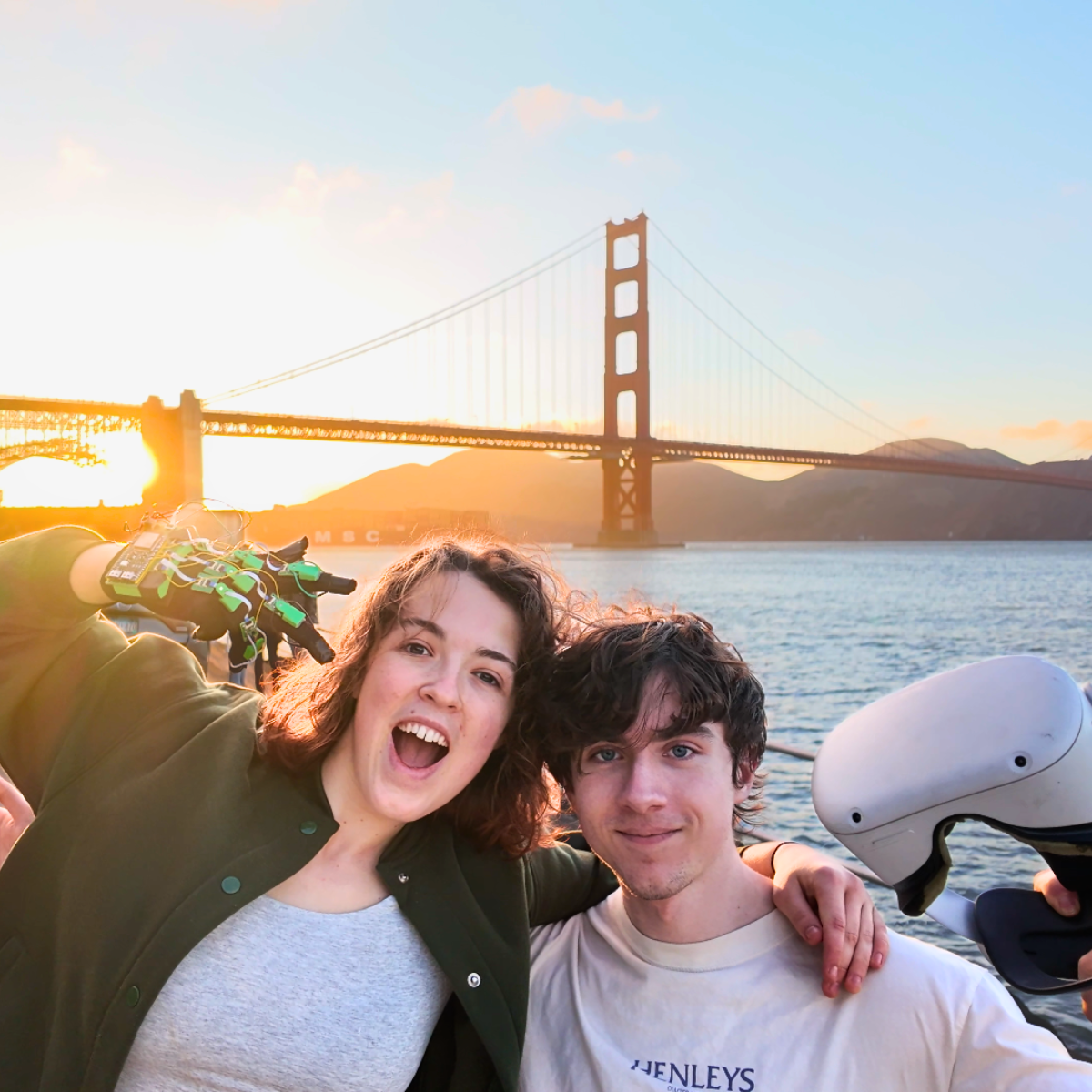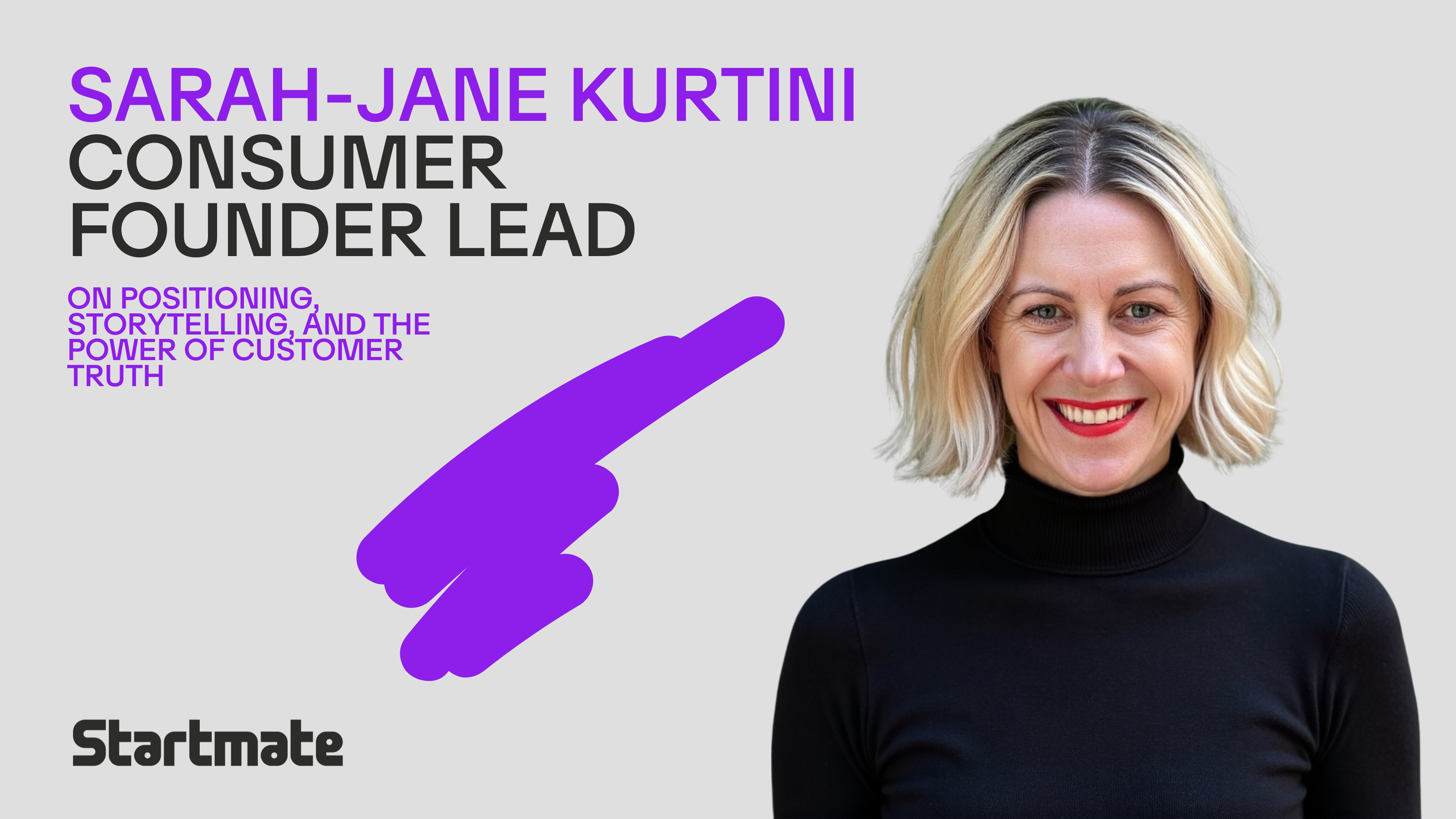When Freesia Gaul first hacked together a makeshift glove in her college dorm, she wasn’t trying to start a company. She was trying to type in the air.
The project was born out of frustration, a dying laptop battery, a restless engineering student, and a stubborn curiosity about whether it was possible to make a Bluetooth keyboard you could wear. But what started as a late-night experiment quickly became something much bigger. Freesia had stumbled on a cheaper, lighter way to build haptic gloves for virtual reality, gloves that let you feel in the digital world.
Today, that experiment is On Zero: a Sydney-based startup building affordable haptic gloves for VR, designed for everyone from curious teenagers to creative technologists. The company’s mission is simple but radical: to democratise access to touch in virtual spaces.
“On Zero means everything starts from zero,” Freesia says.
“It’s the state of ultimate creativity.”
The name comes from a childhood blog she ran under the same title, a nod to both quantum mechanics and low-level coding.
“Back then, I just loved making things for the sake of it. That’s still what this is about, building tools that make imagination possible.”
Solving for touch
The idea for On Zero took shape when Freesia realised that existing haptic gloves, often priced around $6,000, were built for research labs and organisations like NASA, not everyday creators.
“I was part of the VR community growing up, but the tools just kept getting more expensive,” she says. “Eventually, people like me were priced out.”
Her early prototype went viral on YouTube, a proof-of-concept that showed you could make a working glove for a fraction of the cost. That moment caught the attention of her now co-founder, Sean Coulon-Clark, a fellow engineering student she met through a gruelling group project called Design 1000.
“We were forced into a team of eight,” Freesia laughs. “By the end, everyone quit except Sean and me. We stayed awake for five straight days soldering and coding. That’s when I realised he’s the one you want in the trenches.”
Chaos, courage, and community
Of course, it hasn’t all been glamorous. At the Open Sauce conference, an event popular among hardware YouTubers, On Zero’s prototype died on the first day. “We’d plugged a power pin into the wrong slot,” Freesia says. “So we borrowed a soldering iron from the conference, sat on the floor, and rebuilt it in front of a crowd.”
The demo worked. The first person to try it was a Roblox software engineer, who was immediately hooked. “He became our first believer,” she says. “He’s still in touch. That moment, showing something half-broken but full of heart, was when it felt real.”
A product with unexpected reach
While On Zero’s first customers are likely to be VR gamers, the company’s potential applications stretch far wider. One of the most touching moments for Freesia came when a founder running virtual reality programs in nursing homes reached out.
“He told me about showing residents their old houses or towns in VR. I realised how amazing it would be if they could feel a hug again,” she recalls. “That really stuck with me.”
And then there’s the VR Chat community, a subculture of users who buy elaborate setups to embody anime avatars. “I love that side of it,” Freesia laughs. “It’s chaotic and wholesome. They’re the heart of VR in many ways.”
Choosing the right co-founder
When it came to building a team, Freesia approached it like a social experiment. “I created what I called a startup Hydra, seven unofficial co-founders,” she says. “I wanted to see who would stick it out through the uncertainty.”
By the end, Sean was the last one standing. “He was already my friend, which made me nervous. Everyone warns you not to mix friendship and business. But it’s actually made us closer and he’s become way funnier, which I’ll take credit for.”
The partnership works because they share the same stubborn optimism. “You don’t want to be in a room every day with someone who doesn’t make you laugh,” Freesia says. “Especially when everything’s breaking.”
What’s next for On Zero
The team is now preparing to launch a Kickstarter campaign, a natural move in what Freesia calls “a Kickstarter ecosystem.”
Many of the biggest names in VR, from Oculus to independent creators, found early traction through crowdfunding. “It’s the best kind of product validation,” she explains. “The people who care most are literally waiting on that platform.”
Freesia is also deliberate about how she’s funding the company. “Our round isn’t huge, and that’s intentional,” she says. “We wanted to keep control, because we never want to sell. It’s either go hard, or die trying. Palmer Luckey got fired from Oculus, and it was never the same again. I don’t want that story.”
Lessons from the journey
When asked what advice she’d give other founders, Freesia doesn’t hesitate. “Don’t let anyone give you permission,” she says. “Before any investors came on board, I decided I was going to do this no matter what, even if it took three years and I had to pay for everything myself.”
That conviction came from an unexpected encounter. During a summer internship at the National Youth Science Forum, someone once told her, “You seem like one of those valley people. Don’t let anyone kill your spark.” Freesia never forgot it. “That line changed everything. You don’t have to wait to be picked. You can just start.”
A creative revolution
For Freesia, On Zero isn’t just about hardware; it’s about creativity.
“VR is an imagination industry,” she says. “We’re building tools that help people feel more connected, more expressive. If we can make that accessible, that’s the revolution.”
As for what’s next, she keeps it simple: “Follow us. We’ve got something really exciting coming.”
You can find On Zero here.






%204.webp)
.png)
